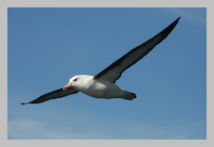


I recently attended a “women in leadership” discussion at my University. One of the questions that we discussed was “What motivates people to take on leadership roles?” Incidentally, I much prefer the term “performing a leadership role” rather than “being a leader”. To me, being a leader sounds too much like dragging people along after you, which is definitely not the style of leadership I aspire to! The many suggestions from our group fell into two broad categories: “incentives” and “support”.
Since I often get asked on a more informal basis why I agreed to be a Head of Department (and even why I like it – a lot of the time), I thought sharing my list on this blog would be appropriate. The process of reflecting on this clarified a few things in my own mind – which is always useful. So, this is what motivates me to do my current leadership role:
- I have a genuine interest in bringing success to the department and organisation (bear in mind there are lots of different definitions of success of course!)
- There is a clear opportunity to contribute using my skills or those I can develop whilst in the role
- I have a desire to see the job done well – probably my slight(?) “control freak” tendencies come in here too
- The role is aligned with, or at least not in contradiction of, my core values and beliefs (e.g. empowering people, self-development, authenticity, transparency, equality of opportunity, collegiality, the importance of communication, integrity, involved and shared parenting )
- I do have a strong sense of duty to a Department that has been very good to me.
And what would motivate me to take on a different leadership role (in addition to the above which would all still be necessary)?
- The role must be achievable part-time and viewed as such by other senior management colleagues (This is because being full-time would compromise some of my values in 4 above. It’s fine in my current role, but there are no part-time or job sharing Heads of School in my institution at the moment)
- I have to be able to see myself working successfully with and being valued by the other people at the same level (again this is fine in my current role, and increasingly so at the most immediate next level, but less clear that it would be the case higher up)
- There would need to be concern for a career development pathway for me – I want to be “Ellie doing a leadership role”, not “a leader”
- I would need to feel confident of being able to access a support network, e.g. regular “Ellie-centred” reviews, easy access to coaching services – I have had some success in getting this by simply keeping asking for it (clearly in the right places) and I know the University is looking at developing this network over the next few years, but it’s still a long way from being something you can rely on to be there.
But perhaps the greatest motivation is feeling that sometimes I make a contribution, however small, to someone great getting the recognition or the opportunity they deserve, or to the group, Department, School or University being a little bit of a better place to work in after I’ve been involved. Those are certainly the occasions that have me bouncing around in my office with a huge smile on my face (yes, literally on at least one occasion), and make it possible to work through some of the less intrinsically motivating tasks that come with the role.




